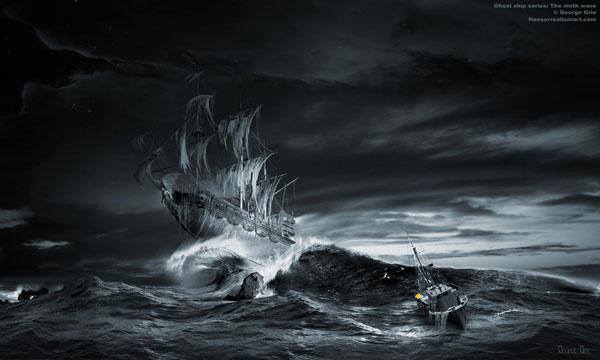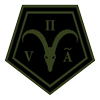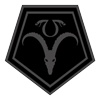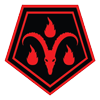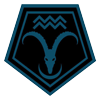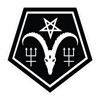The Collective Unconscious and the Left-Hand Path
By Thomas LeRoy, Founder of The Sect of the Horned God
The four pillars of the left-hand path educational foundation called The Sect of the Horned God are philosophy, psychology, mythology and the occult. These four sciences are represented by four men: Friedrich Nietzsche, Carl Gustav Jung, Joseph Campbell and Anton LaVey. And the most important of these disciplines (for it leads to a greater understanding of the other three) is the science of the mind — psychology. Jung, and his theory of the collective unconscious, has been an indispensable tool in our understanding of not only mythological archetypes, but also the occult.
During an individual’s lifetime the make up of the personal unconscious is manifested, but the contents of the collective unconscious invariably consist of archetypes that were present from the beginning. Archetypes are at the foundation of the collective unconscious. They represent basic human behaviors and situations. Thus, the mother-child relationship is governed by “The Mother” archetype, the truth-seeker in “The Sage”, the desire for power and control is represented in “The Ruler” and so on. Also, and in reference to the occult, mystic experiences are also governed by archetypes, not by entities from without. But the archetypes that are clearly characterized from an empirical point of view are those which have the most frequent and disturbing influence on the conscious self, or the “ego”. And the most accessible of these, and the easiest to experience, is the “Shadow”, for its very nature comes from, in greater part, the personal unconscious.
For a better understanding of the collective unconscious and the archetypes therein, picture a vast ocean, limitless, with small boats adrift upon that ocean. These boats represent our egos, or conscious selves. We are in control of our vessels to a certain extent, but in truth, we are at the mercy of the elements, namely the sea (the unconscious/collective unconscious). Swimming beneath its surface is an array of creatures that have an impact, large or small, upon our vessels. They could, with ease, swim from one to the other, either to the benefit, or degradation, of the individual ego. Those upon the left-hand path must endeavor to utilize these predators of the deep to the exaltation of the ego, rather than the degradation. They should, to a certain extent, be assimilated into the conscious personality to break away from the maelstrom that our boats (or egos) are at the misery of. But beware. If one attempts to draw these deeper creatures of the collective unconscious to the surface, they will invariably die, for they were never meant to be a part of objective reality. They are metaphor, symbols, whereby a literal interpretation will result in their demise; for a metaphorical truth is not an objective truth.
The shadow, though, that which is fed by the personal unconscious, can be brought to the surface through symbolic means. One way is by artistic representation, thus the ego is able to integrate rather than repress unpleasant unconscious impulses. Examples of positive shadow integration would be artists who deal with dramatic or foreboding themes, such as the paintings of the late H.R. Giger, or the writings of H.P. Lovecraft. But when repressed, the shadow may still find a way upon our boats, slithering on board and manifesting itself in unpleasant fashions.
We on the left-hand path have come to terms with our shadow. We do not shy away from the darker aspects of music, art, or philosophy. We are compelled by symbols such as Baphomet and the inverted pentagram, that most popular of LHP symbols. The inverted pentagram points downward to the depths of the vast ocean that is our shared unconscious, not toward the heavens. It invites us to look into the sea’s murky depths to seek out personal truths to aid us on our path.
